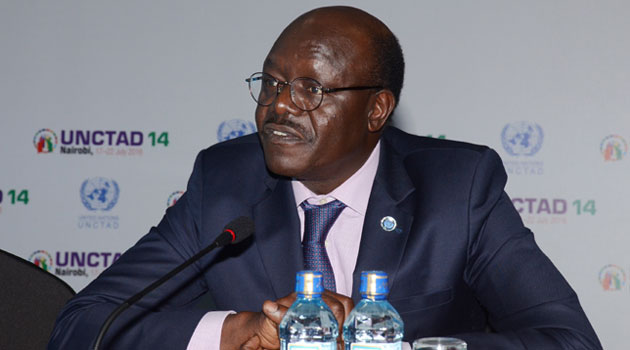Africa’s free-trade pact will help shift the continent away from its over-reliance on volatile commodity exports and boost manufacturing, according to the African Development Bankm (AfDB).Sectors where African products already have a competitive advantage have the most to gain from the deal that joins the markets of more than 50 countries, making it the largest free-trade zone in the world, AfDB President Akinwumi Adesina (pictured) said in an interview in Niger’s capital, Niamey.This was after Benin and Nigeria signed the African Continental Free-Trade Agreement at the weekend, paving the way for trade with reduced tariffs to start next July. “Manufacturing, trading in value-added products and strengthening supply chains will allow for markets to grow and for new markets to emerge,” Adesina said.“SMEs that account for 80 per cent of all trade on the continent will benefit, as well as the financial sector, as digital payments will be needed to transact.”Commodity exports dominate even in Africa’s two biggest economies, with mining production accounting for about half of South Africa’s shipments while crude oil generates 90 per cent of Nigeria’s foreign income.The mechanics of the deal now has to be negotiated.A digital system for payments converging one country’s currency to another member state’s is the most important mechanism to have in place before trading starts, Adesina said.That’s where the Economic Community of West African States’ plan to adopt a common trade currency will also help because it could reduce foreign-exchange risks, he said.Infrastructure gapAccess to the continental market and an increased focus on...
Firms to reap big from free trade -AfDB
Posted on: July 16, 2019
Posted on: July 16, 2019
















